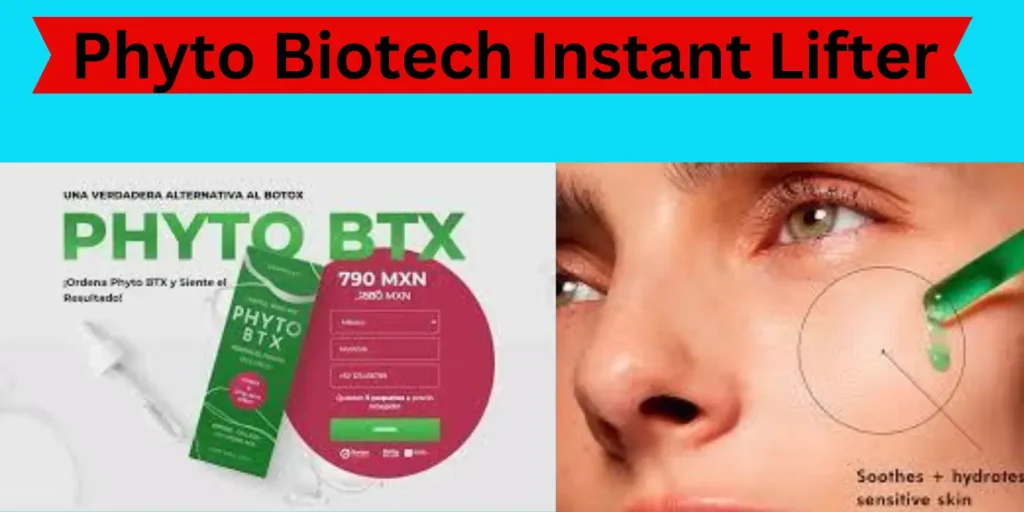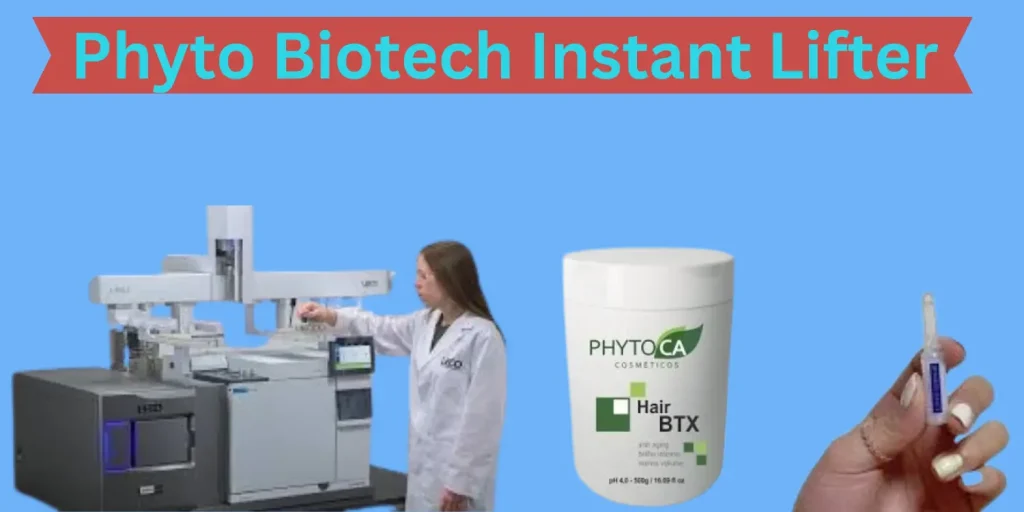Phytochemicals therefore are the focus of phytochemistry which is the branch of chemistry that involves compounds produced by plants. Therefore, it can justifiably be stated that for plants to develop in the proper manner, members of either class cannot be considered indispensable. However it is crucial to identify, isolate and investigate plant chemical components especially secondary metabolites important for plants to function as a defense system against environmental stress, diseases and pests.

What is the introduction of Phyto Chemistry?
Phytochemistry, the branch of chemistry dealing with the chemical substances produced by plants, is the field concerned with phytochemicals. Neither class should be considered required for the normal growth and development of plants. However, the identification, separation, and study of chemical components from plants, particularly secondary metabolites, that are critical for plants to provide a barrier to diseases, pests, and environmental stressors. These compounds, such as phenols, glycosides, alkaloids, flavonoids, and terpenoids have significant biologically useful activity in food, pharmaceutical, and agricultural industries.
Phytochemistry study has helped to find many medicinal substances, and plants were used for medical purposes for a long time. The human utilization of plant derivative compounds such as morphine, quinine, and paclitaxel has greatly influenced modern medicine, for example. chemicals are beneficial in the field of natural product research and the drug design due to their recognized anti-inflammatory, anti-carcinogenic, anti-microbic and antioxidant properties.
Moreover, chemistry is crucial in the production of biodiversity-based insecticides, cosmetics and food preservatives. Modern techniques such as chromatography, mass spectrometry and NMR spectroscopy are used to separate and characterize these bioactive compounds. The science of chemistry is continually growing with new discoveries about plants’ myriad and mighty chemical arsenal.
What does Phyto multi correction serum do?
The Phyto Multi Correction Serum for skin care is designed to address multiple ageing and skin issues by providing a comprehensive solution to improve skin appearance and quality. This serum typically combines potent plant extracts, antioxidants, peptides, and other active ingredients to target a range of skin concerns such as fine lines, wrinkles, uneven skin tone and dullness.

Phyto Multi Correction Serum Benefits — The key benefits of the Phyto Multi Correction Serum are improving skin elasticity, stimulating collagen production, and promoting skin hydration. By reduction of wrinkles and fine lines, its formula makes a complexion younger, tighter and pungeont. Antioxidants in the serum protect the skin from the environmental stresses that accelerate ageing, like pollution and UV rays. In seeking a more uniform tone, it also often contains lightening agents that help reduce the appearance of dark patches and hyperpigmentation.
Many Multi Correction Serum formulations have no harsh chemicals or perfumes in them, meaning they can be used on most skin types, including sensitive ones. Consistent use of this serum can leave skin looking more balanced and rejuvenated, smoothing out texture and restoring a natural glow.
What is Phyto used for?
“Phyto” is often used to describe plant-derived products and ingredients, particularly in the realms skincare, haircare, and health supplements. The term comes from the Greek meaning “plant.” Phyto skin and hair care products made from plant-based compounds known for their health benefits like vitamins, essential oils, and antioxidants.

Phyto products are commonly used in skincare to address multiple skin concerns like inflammation, pigmentation, dryness and ageing. As such, several phyto-based skincare products use plant extracts such as chamomile, green tea and aloe vera, all of which are known for their soothing, moisturising and anti-inflammatory properties. These products help the skin age by minimising and supporting the healthy properties of skin through protection and nourishment.
Phyto professional products are used in hair care to revive and fortify hair. They often include plant extracts that enhance hair growth, reduce hair loss, and nourish the scalp. These solutions help with issues such as dryness, damage (from heat styling), and irritation of the scalp and are suitable for a range of hair types. Phyto-based hair products such as serums, shampoos, and conditioners offer to feed the hair with important nutrients that return its shine, softness, and volume, thus promoting overall hair health.
Overall, Phyto products are highly coveted for their all-natural, plant-based ingredients that work wonders for skin and hair health.
How do you use Phyto corrective mask?
Phyto Corrective Mask is a topical skin treatment that moisturizes and calms itchy or sensitive areas of skin and helps reduce redness. It is most commonly used for skin conditions such as sunburn, post-operative pain and generalized inflammation.” To make the most out of the Corrective Mask, follow these directions:Cleanse your skin: First, wash your face thoroughly to remove any dirt, excess oil or makeup.
After washing your skin with a gentle cleanser suitable to your skin type, pat your skin dry using a new towel. Slather On: Spread a thick layer of Corrective Mask over clean skin. Be mindful of any areas that may be more sensitive or irritated. Do not touch the eyes or lips. Leave On: Allow the mask to sit on your skin for ten to fifteen minutes. Alcohol, glycerin, hyaluronic acid, plant-based extracts that soothe and nourish delicate skin — these are all ingredients your skin craves during this time to help restore its health and vitality.
Rinse: After the specified time has passed, remove the mask using lukewarm water. As you rinse, lather up to fully remove the mask. In fact, the more emollient a moisturiser you put on your face after taking off the mask, the more soothing and restorative, and sealing in the good stuff. For best results, apply Phyto Corrective Mask as desired or several times per week, especially for inflamed or compromised skin.
How to apply phyto corrective gel?
Phyto Corrective Gel is a medicinal skin care product that is designed to provide mild and calming effect on the skin. It’s great to reduce redness, swelling and pain caused by rosacea, acne or post-procedure irritation. Here’s how to make it work for you:
Wash Your Skin: Begin by washing your face with a gentle cleanser suitable to your skin type. This removes debris, oil, and pollutants, ensuring your skin is clean and ready to soak up the gel.
Tone (optional): If you use a toner in your skincare, apply it step 2 A gentle, alcohol-free toner can prep your skin further for active elements in the Corrective Gel.
Apply the GelDab a small amount of the Phyto Corrective Gel on your fingertips. Gently apply the gel on your skin, focusing on areas that need extra care, such as irritated, red, and inflamed areas. As the gel is fast absorbing and isn’t heavy, a tiny bit will suffice.
Let It Absorb: Allow the gel a few minutes to penetrate your skin. Just allow the soothing ingredients, including hyaluronic acid and plant extracts, to work their magic with no rinse.
Follow Up with Moisturiser: After using your usual moisturiser seal hydration in.
For best results apply the Corrective Gel two times a day, in the morning and in the evening, or as needed to provide cooling relief to skin plagued with inflammation.
What does Phyto do for the skin?
Phyto-based products contain plant-based compounds that have relaxing, moisturising, and healing properties to the skin. A mix of vitamins, antioxidants and natural botanicals work together to enhance the overall health and appearance of the skin. This we know very well, and it also applies to the ability of phyto skincare to reduce inflammation. Because you often use ingredients such as cucumber, chamomile and aloe vera to calm redness, irritation and sensitivity, phyto products are also great for sensitive or reactive skin. They work to maintain a healthy moisture content and skin barrier and are also moisturising and attractive. Other phytoproducts will help combat the symptoms of aging by promoting skin renewal and increased elasticity.
Phyto-derived cosmetics have been frequently shown to contain antioxidants such as vitamin C and green tea extract, which protect the skin from environmental factors such as pollution and UV rays—two of the major contributors to aging [4, 5, 6]. Moreover, many phytoproducts intended for skin care address specific skin problems such as UV damage, acne, or hyperpigmentation. For example, some of the plant-based ingredients have antibacterial or skin-whitening properties that help lighten blemishes and improve the overall complexion. To conclude, based on the restorative and periodic qualities of plants, phyto-skincareters use them to help individuals achieve healthier and more vibrant skin.
What are the side effects of phyto hair loss?
Phyto hair loss products such as their shampoos and hair treatments for thinning hair or hair loss are created with plant derived compounds to promote hair growth and encourage a healthy scalp and are, for the most part, considered safe. Side effects, while rare and dependent on an individual’s sensitivity to certain compounds, are possible with any topical treatment.

Some of the potential drawbacks include:
Allergic reactions: Some plant extracts or aromas found in the product can cause undesirable reactions in some individuals. Possible symptoms include itching, redness, swelling or rash on the scalp. If this occurs, it’s best to discontinue use and to visit a dermatologist.
Scalp Irritation: Minor scalp irritation or burning of the scalp may occur in certain individuals, especially those with sensitive skin, when using a product with potent active ingredients present such as essential oils or specific plant extracts.
Dry or Oily: While many phyto people products are formulated to balance scalp health, some users may notice their scalp getting too dry or too oily, depending on their hair type and the specific formulation used.
Altered Hair Texture: While uncommon, some consumers may notice mild brittleness or extra dryness in their hair if the product wasn’t right for that hair type.
When using phyto hair loss solutions on a large scale, however, it is important to perform a patch test to minimize undesirable side effects.
How do you use Phyto?
As Phyto carries a wide range of plant-based skincare and haircare products, your method of use will vary depending on the specific product you’re using. Here are general guidelines when applying phyto products to skin and hair:
Regarding Hair:
Shampoo: First, wet your hair well. Massage a small amount of shampoo into damp hair and scalp to create a lather. Wash out and repeat if needed. Then apply a conditioner suited for your hair type.
Conditioner or Mask: Apply a generous amount of conditioner or hair mask to damp hair, focusing on the ends, after washing. Leave it on for a few minutes (mask), or as directed by the product, then rinse thoroughly. For all-around nourishment, use a mask once or twice weekly.
Hair Treatments: For treatments that promote hair loss or care for your scalp, putting the product directly to your scalp (usually on towel-dried hair) and lightly massaging is how you use. You apply the therapy as prescribed — generally overnight or for a few hours — then rinse or leave in as directed.
Regarding Skin:
Cleanser: After applying phyto cleansing products, rinse moist skin with lukewarm water and lightly rub in circular motions.
Moisturisers and Serums: Apply a few drops of serum and then a moisturiser after you have cleansed your skin. For best results, for use every morning and also evening.
Directions may differ from Phyto product to product, please follow accordingly.
What is the function of PHYTO?
Phytoproducts are products which are focused on using natural plant-based materials to promote and improve the skin and hair health. Phyto — from the Greek word phyton, meaning plant — focuses on using natural botanicals in its formulas for their helpful and protective properties.
These extracts provide nourishment to the hair follicles and increase circulation and stimulation to the scalp. Together they help resurrect dry or damaged hair, repair damage and reduce splitting and breaking. Serums and masks are types of phytohair treatments designed to hydrate and repair locks, rendering hair shinier, smoother, and less difficult to manage.
For Skin: Phyto skincare products soothe, hydrate, and rejuvenate the skin. They often contain a mix of vitamins, as well as essential oils and plant antioxidants such as chamomile, green tea and aloe vera. These ingredients promote an even skin tone, reduce redness and calm inflammation. Phytoproducts have antioxidant properties, protecting the body from external factors such as pollution and UV rays aside from treating common symptoms of ageing such as wrinkles and fine lines. Their mild plant-based formulas offer clean effective treatment, free of harsh chemicals, which is ideal for sensitive skin.
In short, phytogoods utilize potent plant extracts that exist in nature to maintain and restore overall health and beauty.
What are the conclusion of phytochemicals?
In short, phytochemicals are naturally occurring bioactive substances in plants that are important to human health and well being. These include glycosides, alkaloids, flavonoids, terpenoids, phenolics, and flavonoids which may have anti-inflammatory, anti-cancerous, antioxidant properties, and antibacterial methods. When consumed, they can support various aspects of human health, from supporting immunity to cardiovascular wellness, and they help plants respond defensively against pests, pathogens, and environmental stress.
The field of phytochemistry, or the study of phytochemicals (and many pharmaceutical medications are derived from plant molecules), has propelled enormous advances in medicine. Morphine, quinine, washing coal, paclitaxel and other drugs have transformed modern medicine and shown that plants can provide a rich source of potential medicines.
As research continues, phytochemicals are gaining popularity for their medicinal purpose, as well as their potential to not only prevent chronic diseases but also promote skin health and overall wellness. Their natural origin makes them an ideal alternative for chemical manufactured compounds, especially in the field of natural and alternative medicine.
Phytochemicals are stepping stones in the fields of personal care, nutrition, and healthcare products, as they provide a hit-up plant-powered solution to disease prevention and promotion of health.
Table of Contents